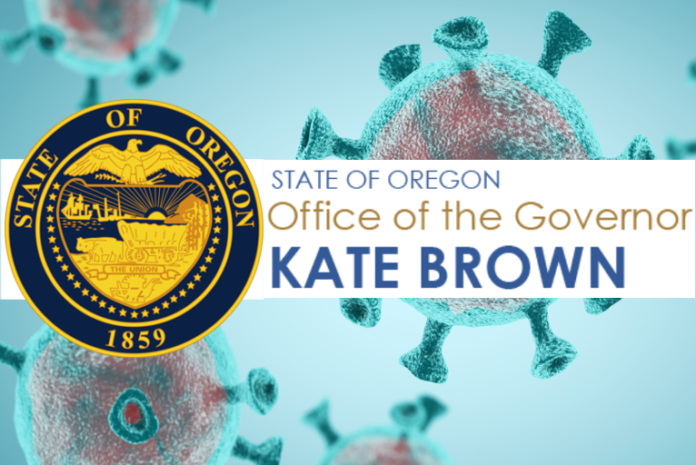Governor Kate Brown announced that health care facilities around the state, particularly those in hard-hit Central and Southern Oregon, will soon get a boost in nurses, paramedics, and other health professionals to help respond to the surge in COVID-19 hospitalizations fueled by the Delta variant.
The state has finalized a contract with medical staffing company Jogan Health Solutions to deploy hospital crisis teams, a total of up to 500 health care personnel, to Central and Southern Oregon, as well as long-term care facilities statewide.
Separately, the state has also contracted with AMN Healthcare for at least 60 additional nurse and clinical positions. Specific positions are still being determined, as are the locations for their deployment. The additional personnel will bolster medical staff capacity to help manage hospitalizations that have jumped more than 990% since July 9.
“The deployment of crisis response teams should provide some welcome relief to our hospitals, particularly in Central and Southern Oregon, that are overwhelmed given the recent surge in hospitalizations among mostly unvaccinated individuals,” said Governor Brown. “The hospital crisis we are facing isn’t just about beds––it’s about having enough trained health care professionals to treat patients. I am so pleased that we will be able to provide these resources to help our hospitals and long-term care facilities meet increased demand and can continue to provide vital health care to Oregonians.”
Under the state’s contract with Jogan Health Solutions, hospital crisis response teams will head to central Oregon to support the St. Charles Health System in Bend and Redmond areas, and to Southern Oregon to support Asante hospitals in Medford, Ashland, and Grants Pass, as well as Providence-Medford Medical Center and Mercy Medical Center in Roseburg. The hospital crisis response teams will be supported by up to 300 registered nurses in medical-surgical, emergency departments, and critical care; 20 paramedics; 61 certified nursing assistants; 34 respiratory therapists; and 5 medical technicians. These teams will also be ready to move to other hospitals if needed.
“This is a much-needed infusion of qualified medical personnel that can help us get through this critical time in the COVID-19 pandemic,” said OHA Director Patrick Allen. “These crisis teams will be completely re-deployable. We will be working with the Regional Resource Hospitals and Incident Management Team to move hospital crisis teams to other hospitals and long-term care crisis teams to other long-term care facilities, where the need is greatest.”
Long-term care crisis response teams—a total of 10—will each be made up of three registered nurses and five certified nursing assistants, and will be sent to facilities around the state to build capacity so patients can be discharged.


















